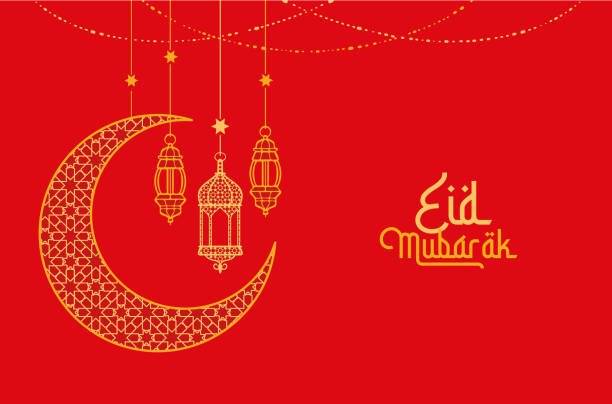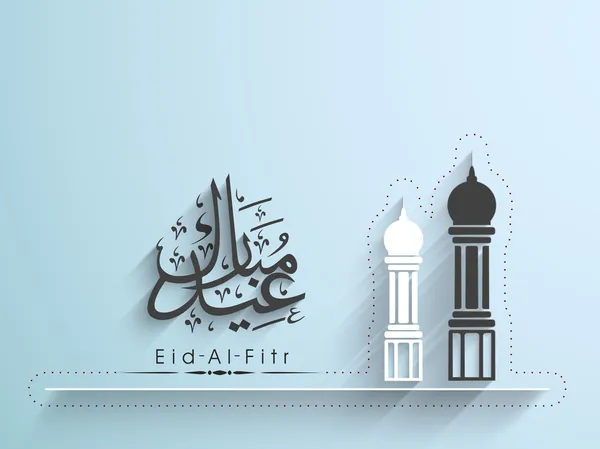Eid ul-Fitr 2024 in UK: Eid ul-Fitr, the “Festival of Breaking the Fast,” is a cherished celebration for Muslims worldwide, and the UK is no exception. With a significant Muslim population, the country lights up with excitement and anticipation for this special day. It’s a time when fasting gives way to feasting, prayers merge with celebrations, and communities come together in a spirit of unity.
Historical Significance
Eid ul-Fitr has a profound historical significance, tracing back to the time of the Prophet Muhammad. It commemorates the completion of Ramadan, the holy month of fasting, and the revelation of the Quran. This festival is not just about marking the end of fasting but also about reflecting on a month of spiritual growth and devotion.

Cultural Vibrancy
In the UK, Eid ul-Fitr is a reflection of the country’s cultural tapestry. From the morning prayers at local mosques to the bustling family gatherings, the day is filled with traditions that span diverse backgrounds. Whether it’s savoring sheer khurma or sharing a hearty biryani, the culinary delights are as varied as the people themselves.
Following the Lunar Calendar
Unlike the Gregorian calendar we use in everyday life, the Islamic calendar is lunar-based. This means that Islamic holidays shift slightly each year, falling roughly 11 days earlier compared to the previous year. Eid al-Fitr always falls on the first day of Shawwal, the tenth month of the Islamic calendar.
Community and Charity
Eid is also a time for charity and giving back to the community. It’s customary for Muslims to engage in acts of kindness, embodying the spirit of generosity that Ramadan instills. In cities like London and Birmingham, family events and public celebrations attract thousands, showcasing the communal harmony that Eid promotes.
Festivities and Traditions
Eid al-Fitr is a joyous occasion filled with vibrant celebrations. Here’s a glimpse into some of the traditions observed by UK Muslims:
- Eid Prayers: Special Eid prayers are held early in the morning, often at mosques or large open spaces.
- Greetings and Gift-Giving: Muslims exchange greetings of “Eid Mubarak” (Blessed Eid) and visit family and friends. Gifts, especially for children, are a common tradition.
- Feasts and Delicacies: Eid is a time for delicious feasting. Families gather for elaborate meals featuring traditional dishes like sweets, savory stews, and rich desserts.
- Charity and Zakat: Giving to charity, known as Zakat, holds particular importance during Eid. Many Muslims donate to those less fortunate, fostering a spirit of compassion and social responsibility.
- Community Events: Mosques and community centers often organize special Eid events featuring cultural performances, games, and activities for children.
Looking Ahead
As the UK celebrates Eid ul-Fitr, it’s a reminder of the enduring values of peace, gratitude, and togetherness. It’s a day that transcends cultural differences, bringing people closer in a shared experience of joy and hope for the future.
In conclusion, Eid ul-Fitr 2024 in the United Kingdom is not just a day on the calendar; it’s a vibrant celebration of faith, family, and community. As the country looks forward to this day of festivities, it reaffirms its commitment to a multicultural society that respects and honors all its members.
FAQs on Eid ul-Fitr 2024 in the United Kingdom
1. What is Eid ul-Fitr?
Eid ul-Fitr, also known as the “Festival of Breaking the Fast,” is a Muslim holiday that marks the end of Ramadan, the Islamic holy month of fasting. It is a time for prayer, feasting, charity, and community celebrations.
2. When is Eid ul-Fitr 2024 in the United Kingdom?
Eid ul-Fitr 2024 in the United Kingdom is confirmed to be on April 10th, according to the East London Mosque and London Muslim Centre. The date is determined by the sighting of the moon, which signifies the start of Shawwal, the tenth month in the Islamic lunar calendar.
3. How do Muslims in the UK celebrate Eid ul-Fitr?
Muslims in the UK typically start the day with special prayers at local mosques or outdoor prayer grounds. The rest of the day is spent visiting family and friends, exchanging gifts, and enjoying festive meals. Charity, known as Zakat al-Fitr, is also an important part of the celebration.
4. Are there any public events for Eid ul-Fitr in the UK?
Yes, many cities in the UK, including London and Birmingham, host public events for Eid ul-Fitr. These can include family activities, live entertainment, food stalls, and exhibitions. The Eid Festival in London’s Trafalgar Square is a notable example.
5. What are some traditional foods enjoyed during Eid ul-Fitr in the UK?
The foods enjoyed during Eid ul-Fitr in the UK vary widely due to the diverse cultural backgrounds of the Muslim community. Some traditional dishes include sheer khurma (a sweet pasta and date pudding), biryani (a spicy meat and rice dish), and various sweet treats like baklava and ma’amoul.




























